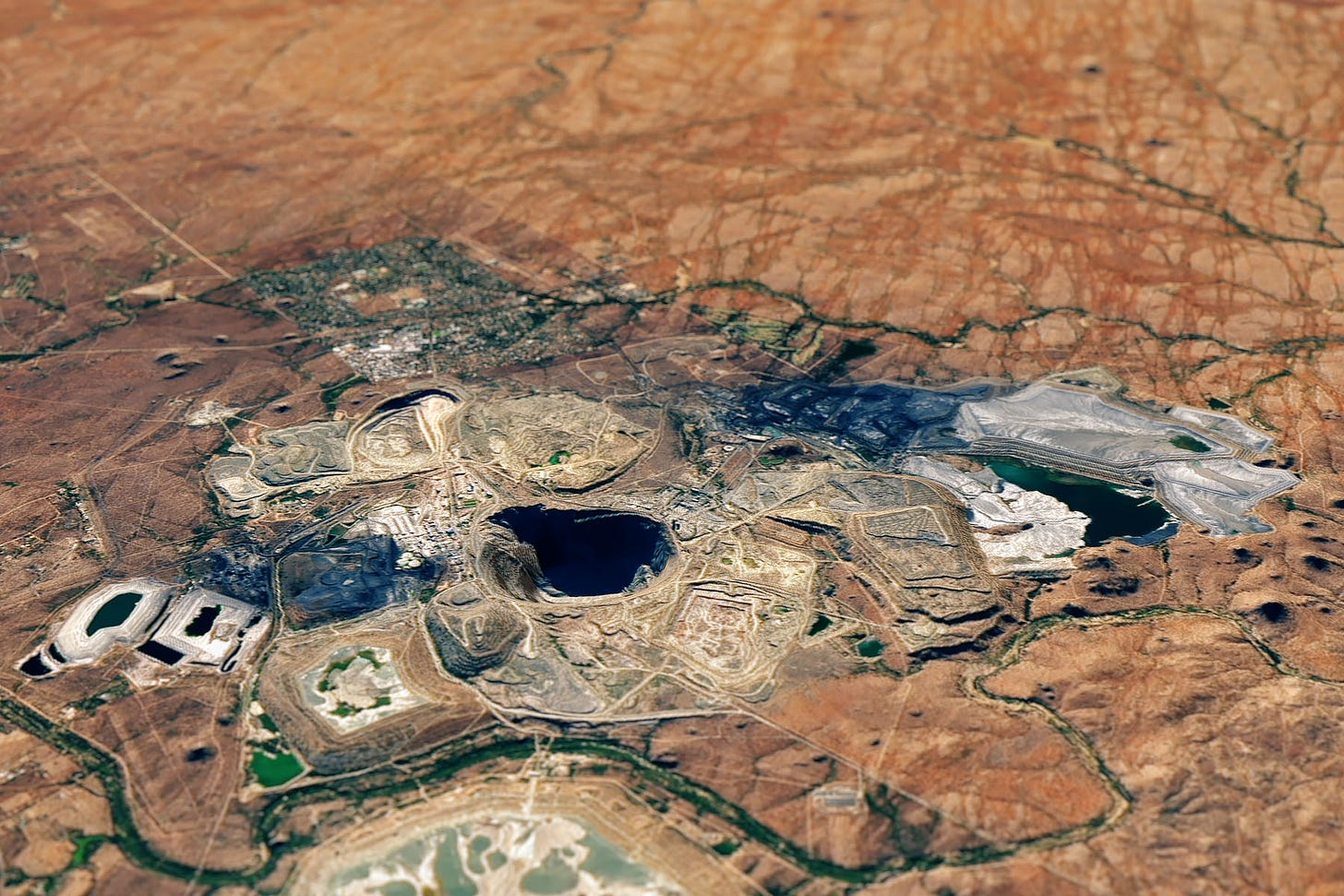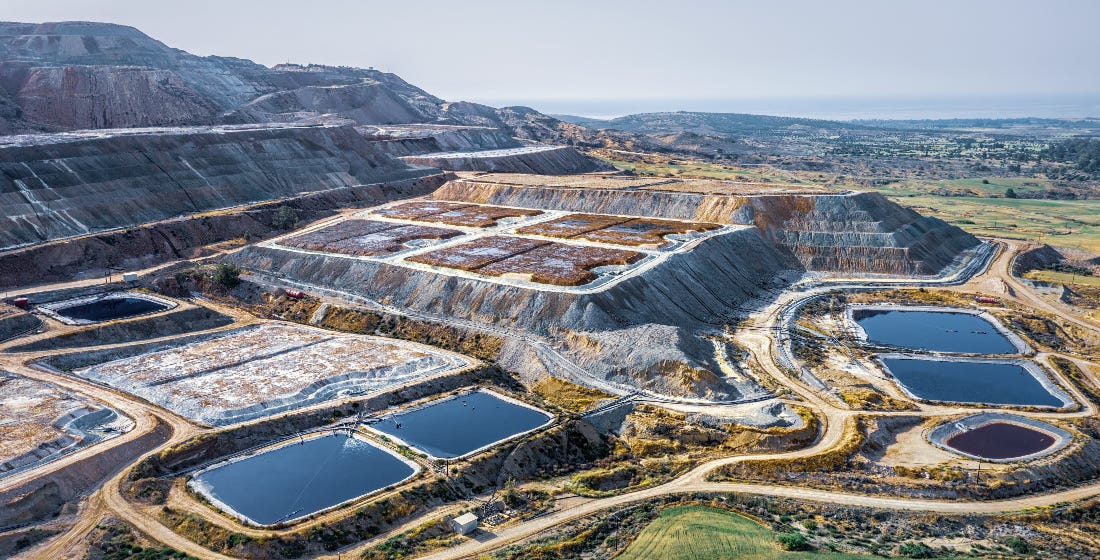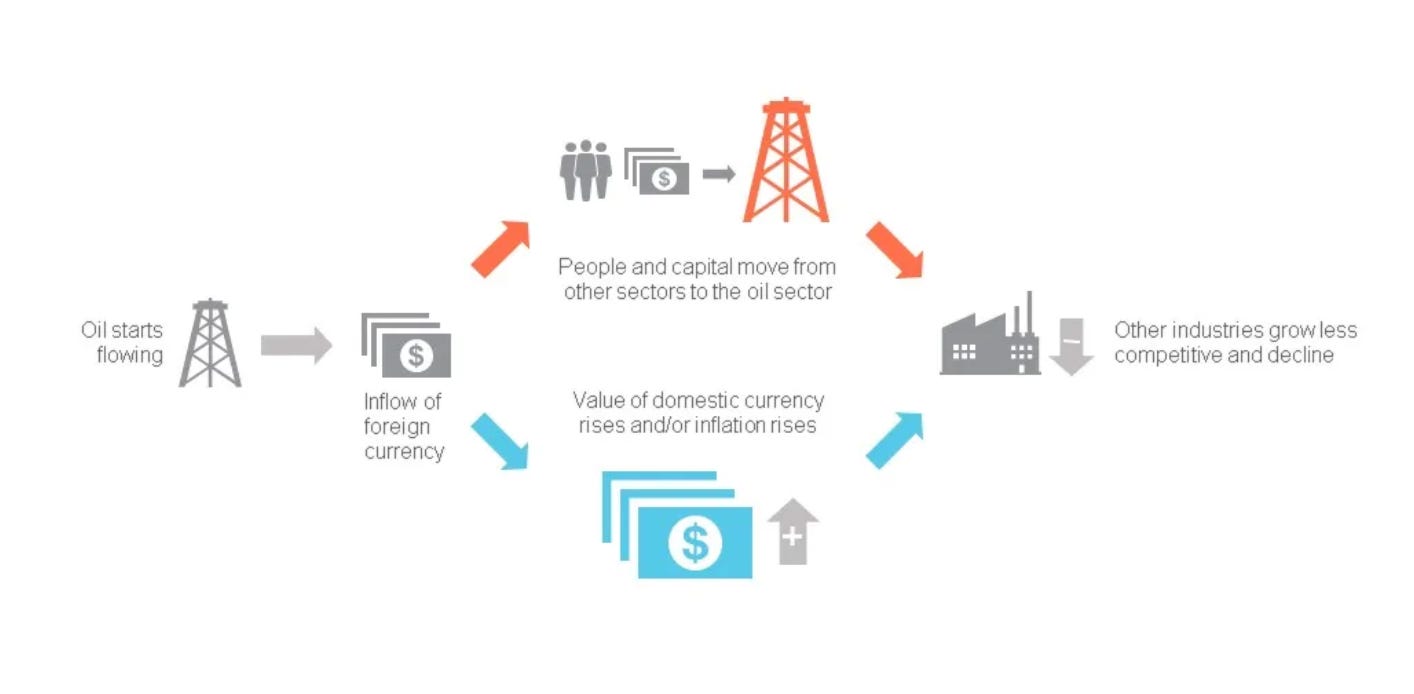The resource curse: Opportunities beyond natural resources on the African continent
Juxtaposing Africa's resource-rich and resource-light countries
Hello everyone,
the African continent is full of natural resources - but the comparison between African countries rich in natural resources and those with fewer resources underscores the complexity of leveraging natural wealth for sustainable development.
It highlights that natural resources can be both a blessing and a curse, depending on governance, economic policies, and diversification efforts.
Ultimately, the path to prosperity for all African nations lies in robust governance, economic diversification, investment in human capital, and innovation.
We’re having a closer look in this deep-dive at resource-rich and resource-light African countries, and why it’s worth it for investors and other global stakeholders to look at the opportunities on the continent beyond natural resources.

🕐 In a Hurry? Here's a 1-Minute Summary:
Resource-Rich Countries' Wealth: Nations such as Nigeria, Angola, and the Democratic Republic of Congo are endowed with vast natural resources, including oil, diamonds, and cobalt, crucial for the global economy and for the energy transition.
The Resource Curse: Despite this abundance, many African countries grapple with the "resource curse," where high levels of natural resources can lead to less democracy, more corruption, and poor development outcomes. This paradox is evident in the continent's struggle with economic volatility, inadequate healthcare, education, and infrastructure.
Innovation and Diversification in Resource-Lighter Countries: In contrast, countries with fewer natural resources, such as Rwanda, Kenya, and Ethiopia, are focusing on diversification into services, technology, and manufacturing. These efforts are yielding more stable economic growth and development indicators, showcasing how investment in human capital and foreign direct investment in sectors beyond natural resources can drive significant progress.
Spotlight on Lower-Resource Countries' Strategies: Rwanda's emergence as the "Singapore of Africa," Kenya's leadership in mobile money and the tech industry, and Ethiopia's diversification into manufacturing highlight how strategic governance and innovation can overcome natural resource limitations.
Beyond Natural Resources - Opportunities for Investors: Africa offers vast opportunities beyond its natural resource wealth, with an upcoming technology sector, a growing middle-class consumer market, and sustainable development initiatives. The African Continental Free Trade Area (AfCFTA) amplifies these opportunities, providing a streamlined platform for trade and investment across borders and signaling the continent's readiness for scalable ventures and innovation-driven growth.
⏳ Ready for a Deeper Dive? Here's the Breakdown:
Nations like Nigeria, Angola, and the DRC are rich in natural resources and have economies heavily dependent on those—oil, diamonds, cobalt, and more.
🪨 Minerals & Metals
South Africa leads in gold, diamonds, and platinum, contributing significantly to the global supply.
The Democratic Republic of Congo is famed for its cobalt and copper, essential for the upcoming electric vehicle and electronics industries.
Meanwhile, Guinea stands out for its bauxite reserves, critical for aluminum production.
☀️ Energy Resources
Nigeria and Algeria are pivotal players in the oil and natural gas sectors, fueling industries worldwide.
In renewable energy, Kenya harnesses geothermal power from the Rift Valley, while Morocco's Noor Ouarzazate Solar Complex is a cornerstone of solar energy capture.
Also the push towards green hydrogen is gaining momentum, with Namibia and South Africa pioneering projects that promise to revolutionize energy production and export.
🌾 Agricultural Wealth
Ethiopia's coffee, and Ivory Coast's cocoa are just a glimpse of the continent's agricultural bounty.
Innovative agri-tech startups are transforming this sector, enhancing productivity, market access, and sustainability.
🐟 Aquatic Resources
Africa's vast coastlines and river systems harbor rich fisheries and untapped aquaculture potential.
Beyond fisheries, the blue economy encompasses seabed mining, energy production, and marine biotechnology, offering new horizons for exploration and investment.

However, despite holding 30% of the world's mineral resources and significant renewable energy potential, a significant portion of the population on the African continent lives in poverty
The "resource curse" implies rich natural resources often lead to less democracy, more corruption, and poor development.
While natural resources contribute to substantial GDP figures, they also often lead to economic volatility due to fluctuating global commodity prices. This dependence often results in a lack of diversification, making economies vulnerable to global market shifts.
Resource-rich African countries often face challenges in translating this wealth into broad-based development gains. Issues like inadequate healthcare, education systems, and infrastructure persist, exacerbated by corruption and mismanagement of resource revenues.
The focus on natural resources can sometimes stifle innovation by concentrating investment and talent in the extractive sectors.

Lack of resource wealth can drive necessity-based innovation, with countries like Kenya and Rwanda becoming hubs for technological and social innovation.
Often countries with fewer natural resources have managed to make more significant progress in development indicators by efficiently utilizing their limited resources, investing in human capital, and attracting foreign direct investment in sectors beyond natural resources.
Countries such as Rwanda, Kenya, and Ethiopia, with less reliance on natural resource exports, have (been forced to) focus more on diversification into services, and manufacturing.
This diversification has contributed to less susceptibility to global price changes, and a broader base for development.

💡💡Spotlight: Examples and Strategies of Lower-Resource Countries
🇷🇼 Rwanda: Known as the "Singapore of Africa," Rwanda has focused on creating a favorable business environment, investing heavily in ICT, and promoting tourism.
The country has become a hub for tech startups and innovation, leveraging its strategic location and political stability.
🇰🇪 Kenya: With its economy not primarily dependent on natural resources, Kenya has become a leader in mobile money through the M-Pesa system and has a booming tech industry known as "Silicon Savannah."
Agriculture also plays a significant role, particularly the tea and coffee sectors.
🇪🇹 Ethiopia: Once heavily reliant on agriculture, Ethiopia is diversifying into manufacturing and services.
The government has encouraged foreign investment, especially in the textile and garment sector, and is working on expanding its renewable energy capacity.
🇧🇼 Botswana: Although relatively rich in diamonds, Botswana deserves mention for its prudent management of natural resources and focus on economic diversification.
It has invested diamond revenues into education, health, and infrastructure, and is exploring sectors like tourism and financial services.
It’s instrumental for investors and international companies to look at Africa’s potential beyond the extraction of natural resources
The continent's emerging technology sector, particularly in fintech, agritech, and health tech, presents fertile ground for digital innovation, driven by a young and tech-savvy population.
Urbanization and the growth of middle-class consumers open avenues in retail, telecommunications, and consumer goods, capitalizing on a rising demand for diverse products and services.
Additionally, Africa's push towards sustainable development and green energy transitions unveils investment prospects in renewable energy projects, green minerals, and eco-friendly infrastructure.
The African Continental Free Trade Area (AfCFTA) further amplifies these opportunities, offering a streamlined platform for trade and investment across borders, encouraging regional integration, and fostering an environment ripe for scalable ventures.
For investors and companies willing to navigate the complexities of the African market, the continent offers vast opportunities beyond its natural resources.
Sources to learn more:
Africa: Special Issue, Oct 2023 by IMF
Africa’s Natural Resource Wealth: A Paradox of Plenty and Poverty published in Advances in Social Sciences Research Journal
Economic diversification in Africa: How and why it matters published July 2022 by Industrial Analytics Platform
From resource curse to blessing: harnessing Africa’s green minerals, 2023, SDG Action
Enjoying out content?
Don’t keep it for yourself and share!
Subscribe to not miss future updates!
Feedback or thoughts?
Please let us know! Just reply to this e-mail. We’re happy to hear from you!
Thanks for reading,
Carolin
Disclaimer: All information provided is not intended to serve as investment advice. Any mention of industries or countries should not be taken as an endorsement.

